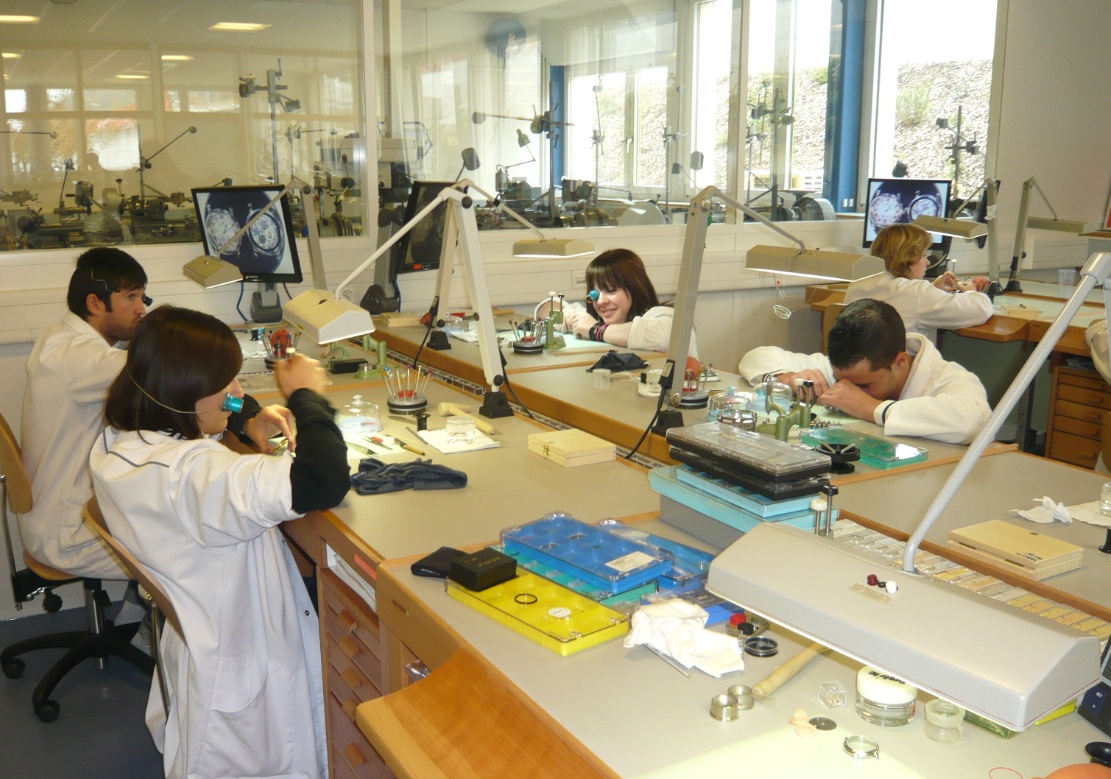Manufacture: this one word is the dream of lovers of beautiful watches. Manufacture is where everything happens, it is where the miracle occurs – the assembly of the timepiece, its creation ex nihilo. Of all the forms of companies that have set themselves the ambition to manufacture these marvels of technology, the watchmaking manufacture is by far the most prestigious, the most recognized … and the most desired. This is because it concentrates all that makes the DNA of a high-end timepiece. Without further ado, let’s go together to discover this essential part of the watch industry.
Attempt to define a watch factory
In the imagination, the watchmaking factory is a kind of village of irreducible Gauls whose self-sufficiency allows it to resist successive Roman invasions. In other words, a factory would be (theoretically) a firm that creates its clocks and watches from start to finish, from conception to production, without calling on any outside help, indifferent to the race of the world. outside its walls.
However, if one applied this definition stricto sensu, few candidates would manage to deserve the supreme title. For a watch factory to really be considered as such, it would have to own its own mines of raw materials, then design and assemble its parts from A to Z (exhaust, spiral, housing, etc.), without ever buying a single to a supplier, without ever having the smallest needle manufactured by a subcontractor.
It may be said, then, that a watch manufactory, in its more accessible form, is a company which designs a major part of its parts itself, and in particular, at least, the whole movement of the watch or the clock; then who assembles them. This does not prevent him from ordering a particular piece from a specialized company. It is the same difference that exists between a quality restaurateur and a fast food: the first will prepare himself good food, without growing his salad in his garden. Ditto for the watch manufacture in its most “democratic” definition.

The watch manufacturer, epicenter of the world of watches
Still, this democratization makes sense – because the idea of a “watch manufacturer” generates a certain prestige and gives value to brands that can take advantage of it. In an ever more open world, in which the progress of globalization tends to blur notions of origin and quality of products, the manufacture is easily elevated to the rank of qualitative label: a firm that makes its own watches, internally , and who ensures its good production end-to-end, can thus rely on this added value to optimize its marketing and reach an informed audience. Which, more often than not, means selling more expensive watches.
In fact, the watch factory became the epicenter of the watchmaking earthquake that hit the planet a few decades ago. Starting in the 2000s, there was indeed a gold rush aimed at many market players to obtain this prestigious name – companies that were formerly content to follow pre-existing mechanisms, and which transformed over time into complete watch manufactures.
This trend coincides with the compartmentalisation of the watch market into two quite distinct entities: on the one hand, the production of everyday consumption, like quartz watches, which was imposed as early as the 1970s. On the other hand, -time evolving in the segments of high-end and luxury, mechanical, and therefore manufactured by watch manufacturers. These models are created for selected consumers, able to pay thousands or even tens of thousands of euros.
Manufacture’s double meaning
That’s why, in the first years of the new millennium, many brands were hammered in their minds to transform themselves into factories, often by acquiring, to put under their banner, the suppliers and subcontractors they were calling upon. that’s the case with Breguet, Breitling, Omega or Rolex, for example. Others started from scratch, with the strength of the wrist – and needles.
But make no mistake: the principle of watch manufacture is not unique to luxury timepieces, any more than the manufacture of high-end models is necessarily related to this concept. The Japanese company Seiko, which offers consumer goods at low prices, is a watch manufacturer in the strict sense (it has adopted a vertical model that allows it to be completely independent); while a great name such as Vacheron Constantin, one of the most luxurious and oldest brands in activity, provides itself in movements


 Français
Français